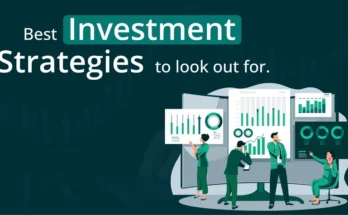That is, spotting opportunities in an ocean of data- this is the difference that makes the successful investors versus the rest of the pack within the ever-churning landscape of world finance. Markets can be messy and turbulent, but the systematized unique approach of Chartered Financial Analyst (CFA) designation makes professionals extremely effective in turning some sort of market insight into investment opportunity. Blending technical knowledge, finance theory, and ethical decision making, CFAs manifest an alchemical quality: raw market data is turned into valuable investment strategies that can resist market volatility and sustain long-term growth.
Alchemy of Financial Expertise
Being a CFA is no small achievement as it enforces mastery over an extensive curriculum that extends to managing portfolios, financial analysis, risk management, ethics, and economics. The program is divided into three challenging levels-the teaching will hone up the candidates in integrating these disciplines in one coherent strategy for interpreted and acted market signals. CFA is not merely knowing numbers or understanding financial statements but rather transforming such knowledge into actionable insights that drive investment decisions.
What has made this sort of strategy so powerful is the CFA’s ability to merge the very best of quantitative analysis with qualitative judgment. Maybe the data-driven analysis reveals some prevailing market trend; it is the interpretation of those trends-think geopolitics and psychology-that make him a CFA and a professional who can turn information into profit.
Market Insights Turned into Strategy
The process of CFA alchemy starts off with aggregation from several sources. It could be through economic reports, corporate earnings, market sentiment, and global events, but CFAs are adept at processing a lot of data to pick out hidden signals. Here’s how the process works:
This process begins with gathering appropriate market data, from financial statements and the stock prices to various economic indicators as well as global news. Advanced quantitative techniques such as financial modeling and statistical analysis aid CFAs in gauging investment potential. Such models provide an advanced view of financial health and performance whereby CFAs can track trends, generate output reports, and determine the value of assets or portfolios.
Risk Management: Where the markets are in a continuous flux, risk forms an integral part of the strategy that CFA adopts. While dissecting this from the historical analysis and scenario analysis, CFAs come up with an estimation of possible risks while investing in it. Market fluctuation, currency change, or simply an impending political crisis can do nothing, as CFAs have a systematic approach for it -to guarantee lower risks with returns. This comparison of risk with return in such an analysis would merely result in distributing just equity and strategic positioning in the face of turbulent times.
Valuation and Opportunity Identification: Through valuation of investments is one of the most critical tasks involved in the alchemy process of a CFA, valuation is used by CFAs to derive the intrinsic value of an asset. Through discounted cash flow (DCF) or relative valuation, it identifies opportunities in the market that may be overvalued or undervalued. For instance, a CFA might realize a stock is undervalued for short-term market sentiment reason, thus buying it at a discounted price before the market adjusts.
Behavioral Insights and Market Psychology: Sometimes going beyond the numbers, CFAs recognize that behavior in the markets are often emotions, psychology, and investor sentiment. Behavioral finance is therefore the most fundamental concept for CFAs to understand how investors behave in reaction to news, trends, or market events. That implies that an understanding of the psychological forces driving market movements makes the CFA behave strategically: buying when others are fearful, selling when others are greedy. The ability to understand and predict market psychology enables the CFA to make profitable decisions even within uncertain or volatile environments.
Building Resilient Portfolios: Once having gathered those market insights, CFAs apply that knowledge to build diversified portfolios that maximize return at a controlled risk level. The differentiation among the combination of asset classes, through the forms of stocks, bonds, commodities, and alternative investments, shapes a portfolio that should thrive under any direction. The CFA focus on diversification in combination with on-going monitoring and rebalancing will ensure resilience to market swings.
Real-World Application: Case in Alchemy
In this end, an institutional investor would be eyeing the emerging markets but with extreme care since there is much risk associated with the emerging markets. To achieve that, the CFA would first begin by analyzing economic data, political climate, and any available financial reports from companies within the targeted markets. The CFA would use quantitative analysis and risk models to determine undervalued assets or sectors with growth potential. The CFA will then create a diversified portfolio across markets in various emerging economies and industries to minimize the risk of any given market. Finally, with a second layer of behavioral insights, the CFA could predict how markets might react to future events such as a change in government policy or a global economic shift and ensure that the portfolio stays aligned with the investor’s objectives.
Conclusion: An Insight into an Opportunity
The CFA alchemy transforms raw data into profitable opportunities-all about understanding financial markets with advanced analytical tools along with an interpretation of market psychology in addition to a deep understanding of this vast investment landscape. It approaches trends rather than reacting to them. They use data and insights as an opportunity to fashion strategic moves that are built and designed for their ability to handle the rigors of resilience and growth.
In a world as unpredictable as financial markets, the CFA approach provides a structured, strategic way of creating value from market insights. Whether in discovering hidden investment opportunities or managing risk, that alchemy of data that the CFA converts to strategy is an invaluable skill to investors on their way to long-term success.



